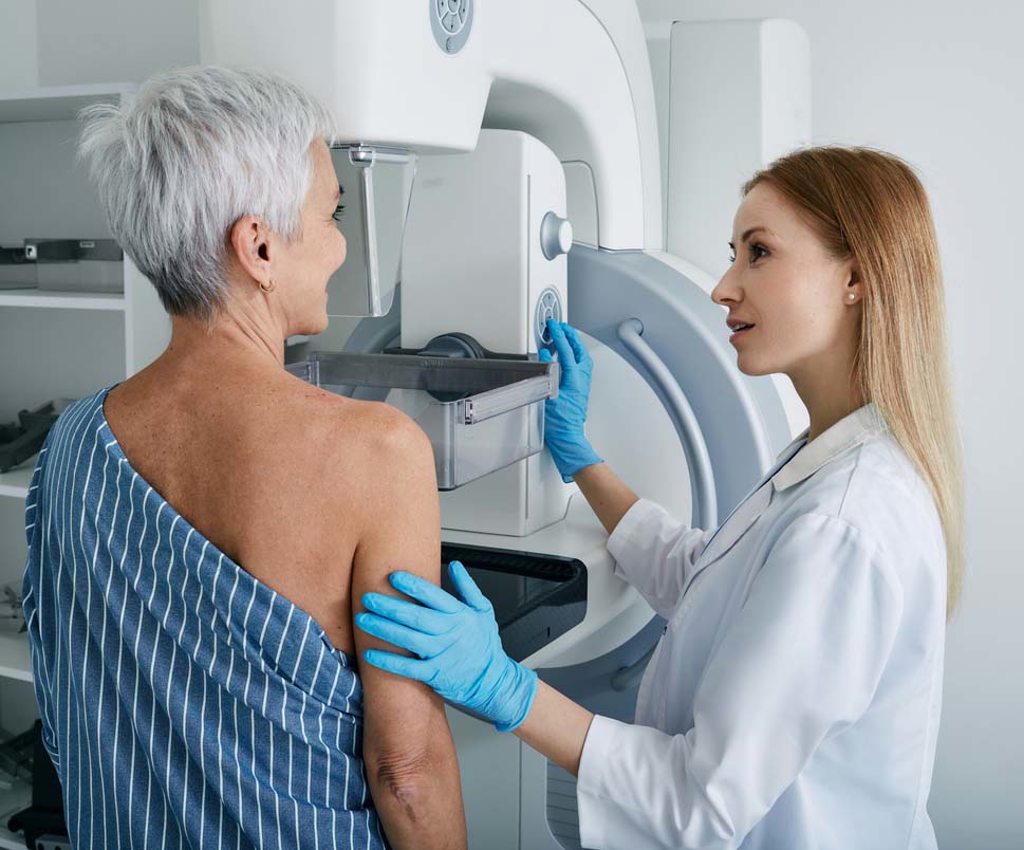Do You Have Dense Breasts?

Every October, reminders are everywhere about National Breast Cancer Awareness Month. But, women should be thinking about their breast health every month not just once a year. Monthly self-examinations combined with an annual mammogram are among the best ways to care for the breasts.
Mammograms are important because they screen for abnormalities and show the density of the breasts. When they receive their mammogram results, women may be told if their breasts have low or high density. It is important to know the level of density because dense breasts have a higher risk of developing breast cancer.
“Nearly half of all women have dense breasts, which can make it harder to find cancer on a mammogram,” said Suzanne Iorfido, DO, Chief of Penn Highlands Healthcare Breast Imaging. “Breast density reflects the amount of fibrous and glandular tissue in a woman’s breasts compared with the amount of fatty tissue in the breasts, as seen on a mammogram,” she added.
A woman’s breast is made up of three kinds of tissue:
- Fibrous tissue holds the breast tissue in place.
- Glandular tissue is the part of the breast that makes milk, called the The tubes that carry milk to the nipple are called ducts. Together, fibrous and glandular tissue are called fibroglandular tissue.
- Fatty tissue fills the space between the fibrous tissue, lobes and ducts. It gives the breasts their size and shape.
“It is normal to have dense breasts,” said Dr. Iorfido. “Unlike some lumps, dense breast tissue cannot be detected by self-breast exams; it can only be identified by a mammogram. Dense tissue appears white on the screen while fatty tissue appears as a black image.”
Dr. Iorfido added, “Having breast density alone does not mean that a woman will develop breast cancer. Other factors should be considered such as age, family history and any personal history showing breast changes that could increase the risk of cancer.”
Breast density can change during different stages of a woman’s life. Dense breasts are more often found in women who are younger, pregnant or breastfeeding, are taking hormone replacement therapy or among those who have a lower body weight.
Penn Highlands Healthcare recently strengthened its commitment to early detection of breast cancer with the introduction of breast density assessment technology. The software enables radiologists to objectively measure volumetric breast density and assess a woman’s individual risk of breast cancer either from 2D or 3D images. It is an effective tool that helps identify those who may benefit from additional screening.
“This new technology is a great addition to our breast program,” said Dr. Iorfido. “This innovative software will ultimately give patients more information regarding their breast health and how to best undergo optimal annual screening, which may include annual ultrasound and MRI in addition to mammography.”
Penn Highlands Healthcare offers state-of-the-art mammogram technology in private and comfortable settings at its hospitals as well as at community medical buildings in Northwestern/Central and Southwestern Pennsylvania. To learn about the services near you, visit www.phhealthcare.org/pink.

